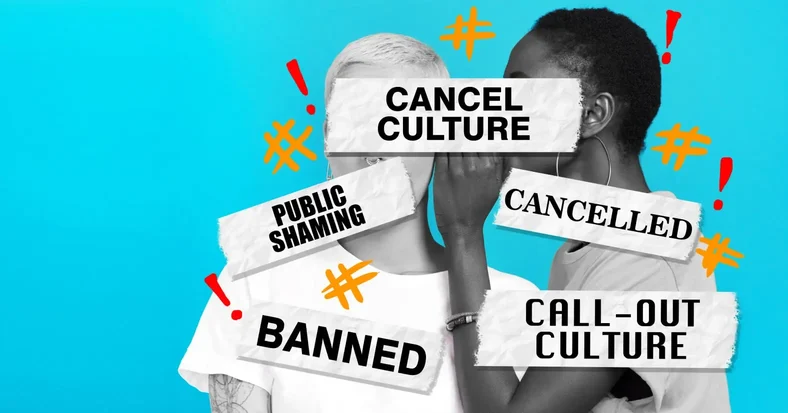Perspective: How Cancel Culture Can Be Good and Bad
With more celebrities and public figures added within society, canceling culture has evolved to its peak. Canceling culture can be a beneficial act to society while also giving negative publicity.
Cancel culture is the practice of withdrawing support from public figures for saying or doing something that offends societal ideals. In modern-day society, it can lead to a beneficial or negative effect on someone’s reputation.
Cancel culture can be beneficial for society because it creates a form of reality for the person who “offended” the said society. For instance, a famous song artist, Sean John Combs, also known as “Diddy” on the internet, was accused of many things including sexually assaulting many people throughout his career. Because of this, the act of cancel culture was proposed to him, changing the future of his entire career.
“Fans and critics are digging up any images of celebrities with P Diddy — even if they were taken years ago. You are suddenly a suspect if you have ever been spotted somewhere near P Diddy, even at some random event years ago. Got a picture with him? Guilty by association” stated Alaxandria Mansia. The harsh act of cancel culture can benefit society from harmful and violent loss.
On the other hand, cancel culture can also affect the society in a negative way because rumors or other misleading information can affect someone’s career. Because of this, people can bandwagon with their peers and spread misleading information to more people across the world.
In an article explaining how bandwagoning and rapid spreading of misleading information can create a harmful threat Risk Intervention and Safety Education wrote, “The rapid spread of information on platforms like Instagram, Snapchat, or Facebook. These can all be used for quickly spreading information with the purpose of increasing awareness or hatefulness through comments, posts, or stories.”
The act of canceling culture can impact either society as a whole or people in particular in a positive yet negative way by revealing the realization of reality.
“Whether you view canceled culture as empowering or destructive, the practice says a lot about our current cultural climate, which has been influenced by the increasingly digital world we inhabit” stated the University of Central Florida.
Perspective: Cancel Culture is Normal
Cancel culture is a cultural phenomenon in which an individual thought to have acted or spoken in an unacceptable manner is ostracized, boycotted, shunned, fired and/or assaulted, often aided by social media.
“Ye’s comments, including his praise of former U.S. president Trump, has caused him to lose deals with Gap, Adidas, and Balenciaga, making him one of the most canceled celebrities of 2022,” explained an article that talks about the American rapper Kanye West, who lost a lot of deals and popularity because of what he said. West said or did something not appreciated by the society and this is the consequence.
Cancel culture is a movement that was born in a natural way with the human race. A human always has his opinion about something and most of the time there’s a common opinion that creates a group of people. If a famous person does something that the public doesn’t like, it’s normal that that person gets “canceled,” because that person is not accepted anymore in the society where they made their mistake.
Another instance of cancel culture is shown in the same article listed above in 2017 when “Apple confirmed what users always suspected, that certain products began to purposely work less efficiently as they aged. The brand admitted that it intentionally slowed down older iPhones under the guise of trying to protect the phone. Along with a big apology, the brand also offered battery replacements at a reduced price of $29 rather than the standard $49.”
It’s the same concept as before: this time a society had to pay for their errors, and they did. It’s normal for people to cancel elements from their existence to defend themself and to make society more efficient.
Cancel culture is something born with the human race, and it is normal.
Perspective: How Cancel Culture Affects Mental Health
Cancel culture has become popularized as social media has continued to grow. The mental impact of being canceled has started to be brought to light.
Brad Brenner a psychologist stated “[s]ome individuals face extreme consequences, such as death threats, after being publicly called out for their views or actions. Individuals who find themselves at the center of a cancel culture storm often report feelings of anxiety, depression, and a sense of social isolation.”
Being canceled or experiencing cancel culture can affect a person’s view of themselves. The consequences of being involved in this culture can affect self-esteem and self-image.
In an article by Carlow University they stated “[t]hese intense feelings grip a person’s self-image and lowers their self-esteem.”







